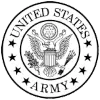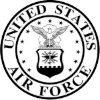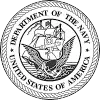Search For Courses
Shopping Cart
Your cart is empty.
Your cart is empty.
Get expert training that will help improve your job performance and advance your career.
Whether you are new to Azure or have some experience and want to take your skills to the next level, we have the right course for you.
We offer training for individuals and groups in a variety of formats accross the country and online, so you can learn Azure where you want and how you want.










As part of our commitment to supporting learners at every stage, we’re working to develop a library of free tutorials designed to help you tackle common tasks and workflows. We understand that not every situation calls for a full course, so these resources offer quick, practical guidance to help you get the job done efficiently.
If you need to train your team in Azure, we can help.
Business Computer Skills offers private group training solutions tailored to your organization’s needs.
Led by experienced live instructors, our group training sessions are ideal for upskilling employees quickly and affordably.
| Course Title | Dates | Times | Type | Fee | |
|---|---|---|---|---|---|
| AI-3024: Design a Dream Destination with AI | 2/5/2026 | 10:00AM-4:45PM EST | Local/Remote | $595.00 | |
| DP-900: Microsoft Azure Data Fundamentals | 2/6/2026 | 10:00AM-4:45PM EST | Local/Remote | $595.00 | |
| AI-3025: Work Smarter with AI | 2/6/2026 | 10:00AM-4:45PM EST | Local/Remote | $595.00 | |
| AZ-1008: Administer Active Directory Domain Services | 2/6/2026 | 10:00AM-4:45PM EST | Local/Remote | $495.00 | |
| AI-102: Designing and Implementing an Azure AI Solution | 2/9/2026 – 2/12/2026 | 10:00AM-4:45PM EST | Local/Remote | $2,395.00 | |
| AZ-040: Automating Administration with Windows PowerShell | 2/9/2026 – 2/13/2026 | 10:00AM-4:45PM EST | Local/Remote | $2,795.00 | |
| AZ-305: Azure Architect Design | 2/9/2026 – 2/12/2026 | 10:00AM-4:45PM EST | Local/Remote | $2,395.00 | |
| AZ-800: Administering Windows Server Hybrid Core Infrastructure | 2/9/2026 – 2/12/2026 | 10:00AM-4:45PM EST | Local/Remote | $2,395.00 | |
| AZ-1002: Configure Secure Access to Your Workloads Using Networking with Azure Virtual Network | 2/9/2026 | 10:00AM-4:45PM EST | Local/Remote | $595.00 | |
| AZ-1003: Secure Storage for Azure Files and Azure Blob Storage | 2/10/2026 | 10:00AM-4:45PM EST | Local/Remote | $595.00 | |
| AZ-1004: Deploy and Configure Azure Monitor | 2/11/2026 | 10:00AM-4:45PM EST | Local/Remote | $495.00 | |
| AZ-1005: Configuring Azure Virtual Desktop for the Enterprise | 2/12/2026 | 10:00AM-4:45PM EST | Local/Remote | $495.00 | |
| AI-900: Microsoft Azure AI Fundamentals | 2/13/2026 | 10:00AM-4:45PM EST | Local/Remote | $595.00 | |
| AZ-1006: Migrate and Modernize SAP in the Microsoft Cloud | 2/13/2026 | 10:00AM-4:45PM EST | Local/Remote | $495.00 | |
| AZ-500: Microsoft Azure Security Technologies | 2/16/2026 – 2/19/2026 | 10:00AM-4:45PM EST | Local/Remote | $2,395.00 | |
| AZ-801: Configuring Windows Server Hybrid Advanced Services | 2/16/2026 – 2/19/2026 | 10:00AM-4:45PM EST | Local/Remote | $2,395.00 | |
| DP-600: Implementing Analytics Solutions Using Microsoft Fabric | 2/16/2026 – 2/19/2026 | 10:00AM-4:45PM EST | Local/Remote | $2,295.00 | |
| DP-3021: Configure and Migrate to Azure Database for PostgreSQL | 2/20/2026 | 10:00AM-4:45PM EST | Local/Remote | $595.00 | |
| AZ-104: Azure Administrator | 2/23/2026 – 2/26/2026 | 10:00AM-4:45PM EST | Local/Remote | $2,395.00 | |
| AZ-700: Designing and Implementing Microsoft Azure Networking Solutions | 2/23/2026 – 2/25/2026 | 10:00AM-4:45PM EST | Local/Remote | $1,795.00 | |
| AZ-2005: Develop AI agents using Microsoft Azure OpenAI and Semantic Kernel SDK | 2/25/2026 | 10:00AM-4:45PM EST | Local/Remote | $595.00 | |
| DP-3001: Migrate SQL Server Workload to Azure SQL | 2/25/2026 | 10:00AM-4:45PM EST | Local/Remote | $595.00 | |
| AZ-2007: Accelerate App Development using GitHub Copilot | 2/26/2026 | 10:00AM-4:45PM EST | Local/Remote | $595.00 | |
| AZ-900: Microsoft Azure Fundamentals | 2/27/2026 | 10:00AM-4:45PM EST | Local/Remote | $545.00 | |
| AZ-2010: Designing and Implementing Platform Engineering | 2/27/2026 | 10:00AM-4:45PM EST | Local/Remote | $595.00 | |
| AZ-400: Designing and Implementing Microsoft DevOps Solutions | 3/2/2026 – 3/5/2026 | 10:00AM-4:45PM EST | Local/Remote | $2,395.00 | |
| AZ-204: Developing Solutions for Microsoft Azure | 3/2/2026 – 3/6/2026 | 10:00AM-4:45PM EST | Local/Remote | $2,795.00 | |
| DP-300: Administering Relational Databases on Microsoft Azure | 3/2/2026 – 3/5/2026 | 10:00AM-4:45PM EST | Local/Remote | $2,395.00 | |
| AZ-140: Configuring and Operating Windows Virtual Desktop on Microsoft Azure | 3/2/2026 – 3/5/2026 | 10:00AM-4:45PM EST | Local/Remote | $2,395.00 | |
| AI-3002: Create document intelligence solutions with Azure AI Document Intelligence | 3/2/2026 | 10:00AM-4:45PM EST | Local/Remote | $595.00 |
Autodesk certifications are a powerful way to validate your AutoCAD skills, and gain recognition as a trusted expert in the field. Whether you're an individual looking to boost your career or an organization investing in team development, our courses are designed to help you earn these industry-recognized credentials.
» View All AutoCAD CertificationsLet us help you or your team get certified and stay competitive.
This certification is designed for individuals who are new to AutoCAD and want to demonstrate basic proficiency. It is suited for students, educators, and individuals who want to enter the design field.
Key areas covered:
This certification is aimed at professionals who have advanced skills in AutoCAD and have experience working on more complex projects. It is typically recommended for those with around 400 hours of real-world experience.
Key areas covered:
Autodesk introduced an expert-level certification to cater to professionals who are highly skilled in AutoCAD and involved in more specialized, complex tasks like 3D modeling, parametric design, and custom workflows.
Key areas covered:
These certifications help individuals and professionals stand out in the job market by proving their expertise in AutoCAD to employers. Autodesk often updates its certification paths, so it’s always a good idea to check their official site or authorized training centers for the most current information.
learn more →Here’s what professionals and teams across the country are saying about their experience with Business Computer Skills
This was the class I needed. The instructor Jeff took his time and made sure we understood each topic before moving to the next. He answered all of our questions, and I was very pleased with this experience.
Amanda T.,
Yale New Haven Hospital
Fantastic course. The instructor was knowledgeable, personable, and made the training truly engaging. I would definitely recommend Business Computer Skills to colleagues.
Carlos M.,
Verizon
The scheduling flexibility and the virtual instructor-led format were ideal for our remote team. We’ll be enrolling in another class next quarter!
Jenna R.,
State of Michigan
I was amazed by the hands-on experience. The material was clear, relevant, and directly applicable to our work. Great experience overall!
Steven H.,
Lockheed Martin